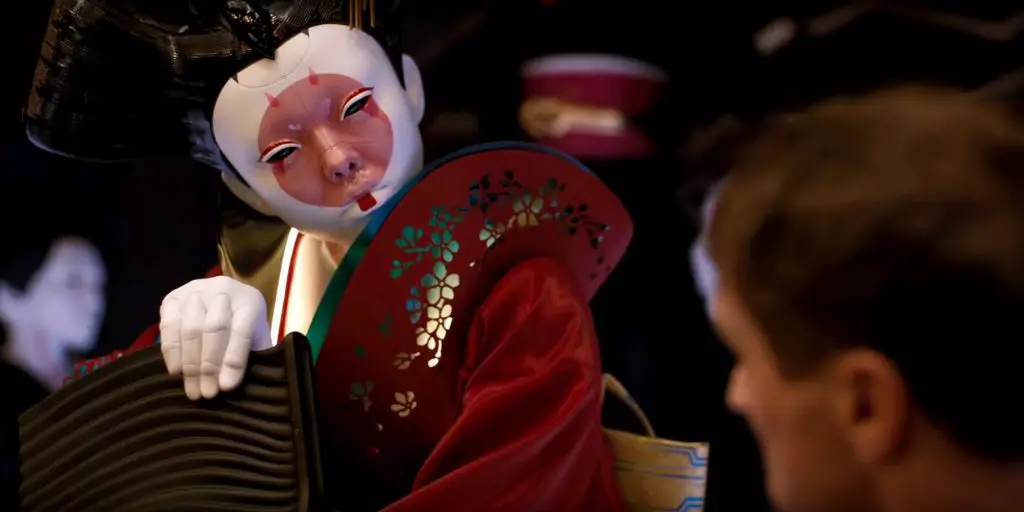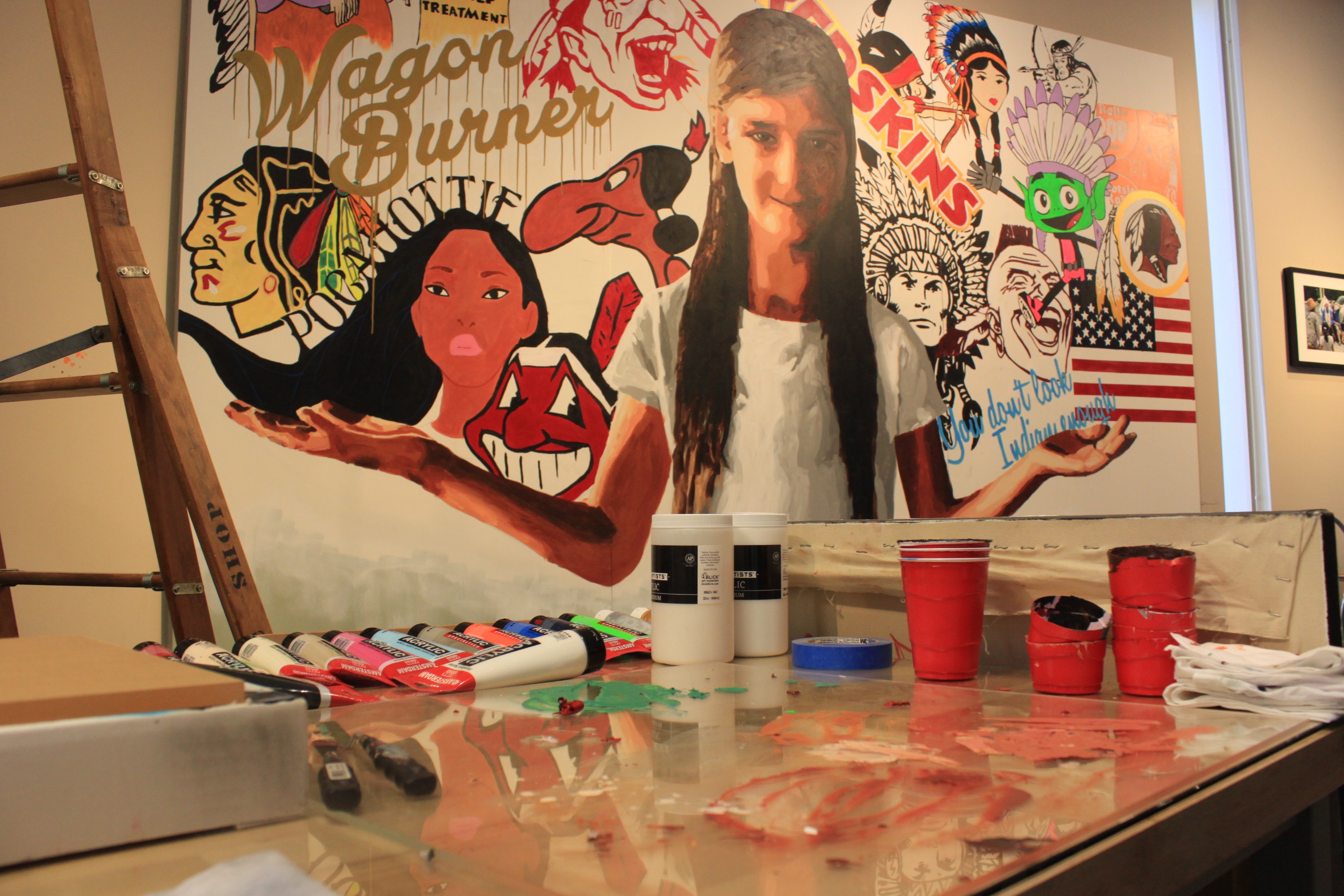When I took a creative writing class last semester, the topic of who is “allowed” to write a story came up several times, one of which was when a student in the class wrote from the point of view of a drug-addicted, poverty-stricken Hispanic man. The student was white, and the ethnicity of the writer versus the ethnicity of the character provoked dispute from another student who was part Mexican. She claimed that the writer was stereotyping Hispanic people.
The student author became defensive, saying that he had grown up around people who were represented in the story and that he never meant for the characters to appear as tropes. However, the female student was so upset by his work that she left during class, almost in tears. The event was a very big eye-opener for me, as it caused me to question who is allowed to tell certain stories. Do artists of any kind, whether it be in words, visual art or music, have to be confined to the world they know based on their own ethnicity, nationality or even gender? Can an artist branch out and tell a story from the point of view of a character who comes from a completely different background?
Some would think yes, artists, if they did research and tried to stay away from stereotypes, should be allowed to write essentially whatever they want. Others would say no, arguing that some people do not have the authority or right to showcase one person or group of people who are different from them on basic levels such as ethnicity. Susan Barker, after she was addressed by a Chinese man who said that she could never understand the Chinese whom she focuses on in her novel “The Incarnations,” due to the fact that she is half white, says in her article “Should Ethnicity Limit What a Fiction Writer Can Write?” that “the identity of the author shouldn’t be of much significance.” She concedes, however, that in our new “media age” in which it is so easy for people to learn about the upbringing of an author, the writer’s “identity can become integral to the interpretation of the text and the determination of its validity.” In other words, understanding where an author or artist comes from, or what ethnicity they are, can greatly impact how audiences view their work.

Hannah Black, for instance, a British-born black artist, found a painting of Emmett Till, which was made by a white artist, Dana Schutz, to be tremendously upsetting. Emmett Till was a black boy who was wrongfully lynched by two white men in 1955 in a case of race-based mob justice. Famously, Till’s mom decided to leave his casket open so that people could see the horror that was done to her son, which is the moment Schutz showcased in her painting, “Open Casket.” Black asked for the painting to be taken down from the Whitney Museum of American Art, where it was being showcased, saying, “The painting should not be acceptable to anyone who cares or pretends to care about Black people, because it is not acceptable for a white person to transmute Black suffering into profit and fun, though the practice has been normalized for a long time.”
Regardless of an artist’s intentions, treading into the waters of artistic expression can cause controversy, which was exactly the case in the stereotype dispute in my fiction-writing class. Such was the case with my classmate who wrote about the Hispanic character, and such was the case when another student writer, who was a white woman, wrote about a Muslim boy from Afghanistan who becomes a suicide bomber. One of the other women in the class thought the story was offensive and that the author had no right in writing a story that wasn’t hers to tell. The author responded calmly, saying that she had traveled to Afghanistan and one of the local guides told her about the troubles of younger children becoming suicide bombers. As a result of her background with the issue, the writer was able to regain some credibility. Still, she apologized for the piece and said that she hadn’t meant for the story to come across as stereotypical; like the other student author, she said that her intention was never to hurt anyone with her story.
I myself have faced criticism for a similar issue. I wrote a short story about a young volunteer in an Alzheimer’s nursing home, which was based off of my own experiences. I wrote into the story two men, both Alzheimer’s patients, who were flirting with the volunteer, since I had something similar happen to me. Though the flirty men were supposed to be funny, one of the students thought I was making older men sound creepy and stereotyping them. The student even compared my writing to when women falsely accuse men of rape. Needless to say, I was shocked by the student’s words.
After these issues, the professor of the class gave his opinion on the matter, saying that, especially in the case of fiction or creative writing, he believed a writer should not be held back due to race, gender or nationality, but that writers should be aware that not everyone is going to like or agree with their stories. At the end of the day, people will be triggered by things in art, whether it be visual, music or writing. An artist cannot necessarily think about everyone’s response to something they create, but when an artist wants to venture into the territory of a different culture, they should be careful and make sure to research and plan their characters so that they can avoid stereotyping.
In other words, people should be allowed their voices, whether they come from the background they are writing about or not; they just need to be cognizant of how serious representation is taken by audience members.













This is a difficult subject to broach and worth talking about. Your classmates would have to be extra special careful and knowledgeable to talk about ‘Mexican junkies’ and ‘Muslim suicide bombers’ because the concepts themselves, while they do describe some real people, are damaging stereotypes at the current time. These concepts can result in actual harm being done to Mexican immigrants and Muslims in the form of political policies. You can look no further than the campaign our current president ran to get into office.
It isn’t as if your classmates said: I’m doing a superhero story, and the main superhero is from Mexico. They went into much more sensitive territory. That said, it doesn’t automatically mean they can’t do a good job, just that they chose an intense story to follow and should be aware of the minefield they’re playing around in. “I didn’t mean to hurt anybody” doesn’t do anyone any good once it’s out there. Nobody who’s hurt is going to care that you ‘didn’t mean it’.
For example, I’m gay. Can straight people write gay characters? Yes, of course. But there’s a long history of terrible stereotypical crap that we’ve been subjected to when straight people have written ‘our’ stories. You need to know what those are and avoid them. If you use them, you do so knowing full well what you’re doing.
You have to ask yourself: who are you writing this for? Why are you writing queer characters? You again need to be aware of what’s come before, because there is a long history of stories being specifically used to demonize and harm us. (https://filmicmag.com/2015/08/01/from-sissies-to-secrecy-the-evolution-of-the-hays-code-queer/) It’s really not as difficult as it sounds, but it requires actually caring about and respecting the people you’re representing. If you’ve never had someone from a dominant culture represent you poorly, it can be difficult to relate, but perhaps you’ve seen it in the way that many men only write female characters through a male lens: objects seen through male eyes and not as characters in and of themselves.
Side note: Ghost in the Shell was specifically accused of white-washing: casting white actors as characters of color.